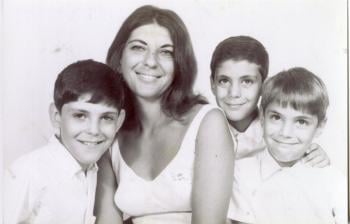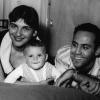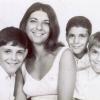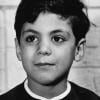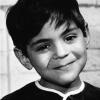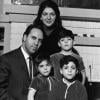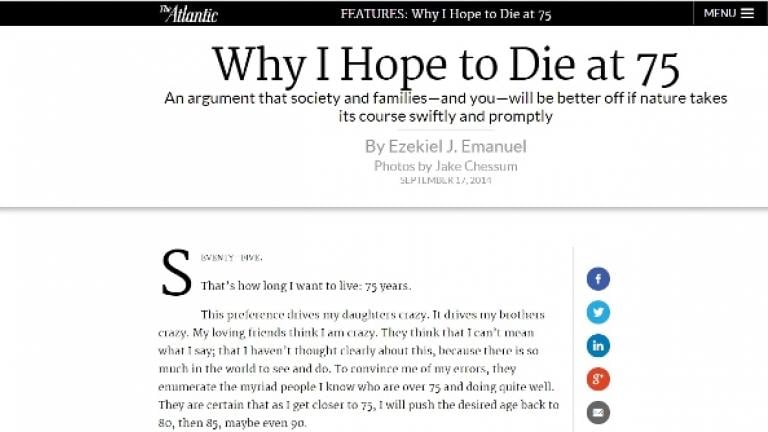We revisit an inside look at one of Chicago’s most famous families. Ezekiel Emanuel, the eldest of the three brothers, talks about his new memoir: Brothers Emanuel. View a slideshow and read an excerpt from the book.
When you come from a family that is temperamentally outspoken and viscerally antagonistic to power, you carry a kind of injustice radar with you at all times. This device, which is always switched on, detects arrogance and the abuse of power with exquisite precision. You then have the choice to act or acquiesce. I faced this choice in third-grade gym class with Mr. Kerr.
Physical education for boys at Anshe Emet was everything you would imagine in a gym class of the 1960s. Think skinny eight- year-olds—some hyperactive, some with undiagnosed attention deficit disorder, many woefully uncoordinated playing dodgeball, tumbling on mats, and climbing ropes under the punishing gaze of a thirtyish male teacher dressed in a T-shirt, khaki pants, and sneakers.
No doubt Mr. Kerr had his hands full with my class. Some of us may have had minimal athletic ability, but we were really talented at talking and arguing. With our many questions, opinions, and suggestions we could drive any gym teacher crazy. Nevertheless, he should have known better than to draw the line he did one winter morning when the chattering and disorder got the best of him.
“All right!” he screamed. “Everyone line up! Now!”
I cannot recall now whether we had been treating our gym teacher with any extra disrespect on that day but he launched into a tirade that ended with the kind of question that reveals a commander who is afraid that he is losing his grip.
“From now on everyone is going to call me ‘sir’ at all times. Got that?”
Mr. Kerr paused for what seemed like ages, then asked, “Does anyone disagree with this? If you do, then step forward across this line.”
Granted, this was elementary school, not the USS Caine, and Mr. Kerr wasn’t Captain Queeg. But it was the third-grade equivalent of a moral showdown. Without hesitation I stepped forward and across the line.
I am not sure anyone noticed me at first. When he finally did, Mr. Kerr had to ask me if I had stepped out of line on purpose. I told him yes, and explained that the respect that comes with the title “sir” is something you earn. And by demanding it, he had shown himself to be someone who did not deserve it.
“Go to Mr. Reisman’s office. Now.”
Like all good private school principals, Morton Reisman was one part educator, one part administrator, and one part diplomat. A tall, balding, bespectacled man, he wore a tailored suit and tie to work every day. He knew the name of every child in the school and was so versatile and intelligent that he could serve as a substitute teacher for any class, including Hebrew. Sometimes, when he was under stress, he suffered from facial tics. He would suddenly twitch two or three times in the middle of speaking. He was so respected—loved, really—that no one seemed to notice or said a word about it.
When I arrived at the school office I explained what had happened and was told to wait while my mother was called. She walked the blocks to school in what seemed like just a few minutes and, after stopping to reassure me, went right into Mr. Reisman’s office. When I was finally escorted into the office I could see that she and my principal were getting along just fine. They asked me to explain again what had happened and I did, doing my best to articulate my belief that respect can be earned, but never commanded.
My mother said she had raised me to hold this belief and that she agreed with me. Mr. Reisman studied us both and saw that we meant what we said. He then said he would handle it and told me to return to my classroom. I was never punished. In fact, at home I was praised for standing up to a bully. I never found out what happened between the principal and the gym teacher, but Mr. Kerr left Anshe Emet a few years later.
At the time, I didn’t know that many other parents would have handled my showdown with Mr. Kerr quite differently. More than a few would have sided with any adult who held authority, no matter what, in order to teach a child to be a law-abiding citizen. When these parents are called to school by the principal they begin by asking their kid, “What did you do wrong?”
My mother practiced what she preached when it came to equality and justice and that meant that we were innocent until proven guilty. She also trusted us, especially when we were little and more or less guileless, to be honest with her. If I said that Mr. Kerr was impatient and disrespectful, she believed me. If we stood up for ourselves, she supported us.
This high level of trust was balanced with responsibilities. The most important one, in my case, involved getting my brothers home from school safely. Because my mother did not drive we used city buses to get back and forth. I started going home alone when I was in first grade, and Rahm was all of four and enrolled in nursery school.
At the end of school, I met my brother and led him outside to the sidewalk, where we turned north on Pine Grove Street. We then navigated Chicago’s traffic, crossing Sheridan Road, one of the busier four-lane streets in the city, until we arrived at a sign marking a stop on the 151 and 153 Chicago Transit Authority routes. Eventually a bus would glide to a halt and the driver would open the door. I’d boost Rahm up the steps of the bus and deposit the fare—eighteen cents for the two of us—in the box. If there were seats available we would take them, but sometimes the bus was so packed we had to stand and hold on to one of the steel poles. Fortunately, the ride to the stop around the corner from our apartment took only a few minutes.
Looking back from the perspective of a twenty-first-century father, it’s hard to believe that allowing kids so young to cross busy city streets and travel alone on public transportation did not constitute parental neglect or child endangerment. Of course, those were different times, and as I recall I never complained or said I was anxious about the responsibility.
Excerpted from BROTHERS EMANUEL by Ezekiel J. Emanuel Copyright © 2013 by Ezekiel J. Emanuel. Excerpted by permission of Random House, a division of Random House, Inc. All rights reserved. No part of this excerpt may be reproduced or reprinted without permission in writing from the publisher.

